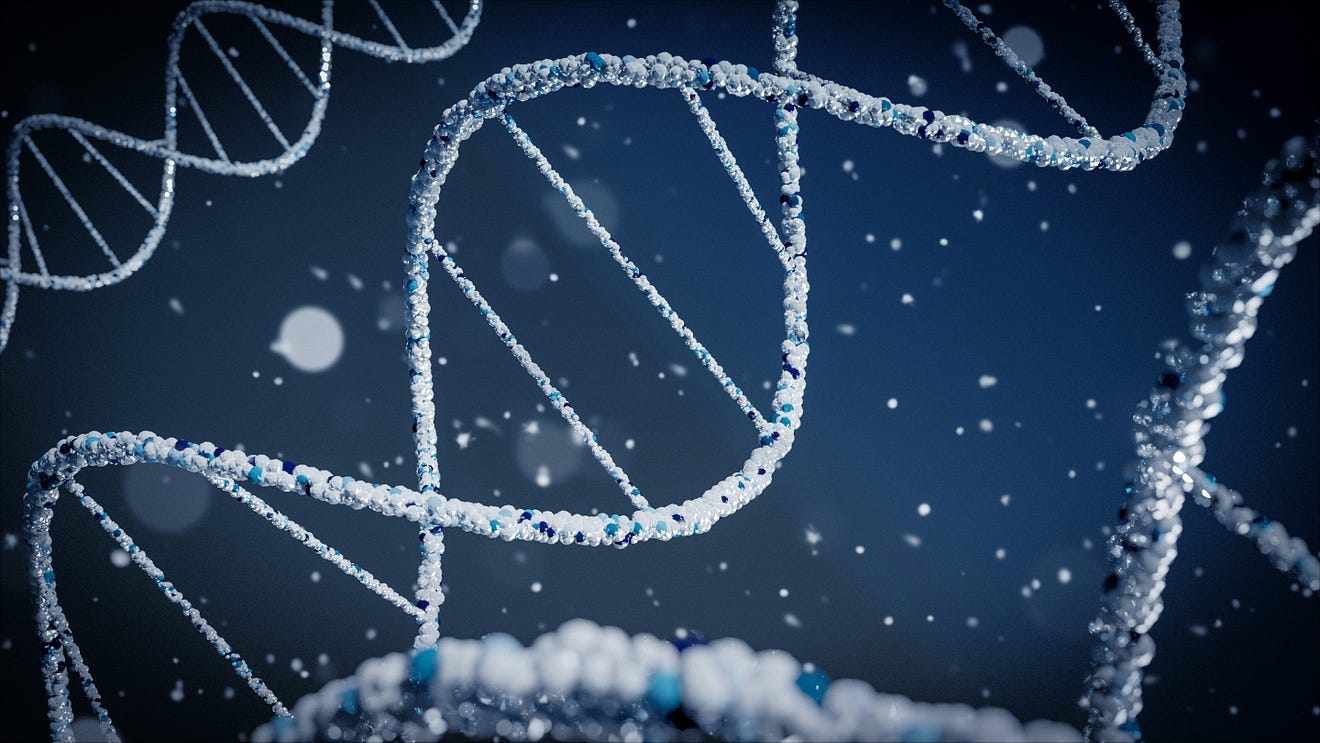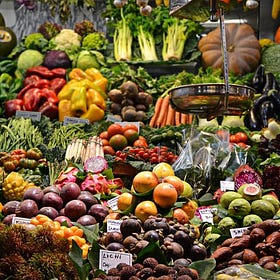Finite Resources and Infinite Wants: How Economic Concepts Apply To Gut Health.
It's an easier way to visualise what's going on.
Space is always at a premium in densely populated cities. The major metropolises of the world all come with high costs of living, and even more so when these metropolises happen to be global financial centres, such as London, New York, Hong Kong or even where I come from, Singapore.
In cities with room for expansion, we can see how urban sprawl takes over as their populations keep on increasing.
Unfortunately, land space is a finite physical quantity. Even if we were to build upwards, as it is in the case of modern skyscrapers, the number of people that a skyscraper can accommodate is dependent on the number of floors that it is built up to.
When all units in a skyscraper or a block of high-rise apartments are occupied, the only way that a new occupier can enter is when an existing occupier decides to leave the block. There are finite units in the block, but when the block is that desirable that there is more demand for a unit in the block than there is a supply of units in that block, then there will be a problem trying to fit in more occupiers than there is space.
Some occupiers may choose to sell their units at a price that they desire, while other occupiers may end up dying and transferring the ownership of their units to other family members who may not be keen on taking up occupancy of that newly vacated unit. Yet other occupiers may not be keen on living with people of certain cultures or ethnicities and move out because they feel uncomfortable, especially if there is some form of ethnic and/or religious bias involved.
It is the same situation with our intestines when we want to relate this idea of finite space to our gut health. Our intestines have a finite amount of surface area for micro-organisms to stick on to. We can consider the inner walls of our intestines as containing “apartments” where our gut microbiota reside in, and they appear in the form of a wide variety of microbial species.
These microbial species tend to form their own communities, much like how immigrants form various ethnic precincts around big cities. Many cities in the world do have a “Chinatown”, for instance, and we’d find predominantly Chinese people and Chinese products for sale there. Los Angeles has its own “Koreatown” and Melbourne has a “Little Italy”, and they tend to exhibit their own Korean or Italian cultures in those precincts.
We can therefore see how the various microbial communities can form their own “precincts” in our guts. Now, these communities are going to take up space and resources (in the form of food and water). They may also be contributing something good or something bad back to their hosts - of course, when they’re contributing bad things back to the host body, we’d be looking at the concept of gut dysbiosis.
It is claimed that gut dysbiosis is at the root of many different health issues, such as a heightened immune sensitivity and allergic responses, and even Type 2 diabetes is indicated.
But how do we even get there in the first place? We can consider “nature” vs “nurture”.
The starting gut microbiota of newborn babies is highly dependent on whether they went through natural vaginal births or Caesarian sections - that’s a “nature” idea, which is related to what they were born with.
Of course, there is the “nurture” factor, which is what these babies are exposed to as they grow up into adults. Antibiotic treatments, for instance, may wipe out entire microbial communities in the gut, similar to a targeted genocide. A steady consumption of processed/fast/junk foods can also change up the gut microbiota significantly, and even prolonged psychological stress and insufficient quality sleep can play a part in affecting the gut microbiota as well.
As the amount of inhabitable space in a person’s intestines is finite, we’d be looking more at the “nurture” factor in attempting to maintain a consistently good gut microbiota balance. We need to be making good decisions about what we’re feeding ourselves with (it’s definitely not 2 weeks straight of McDonald’s), because the balance of the microbial communities in our gut will definitely influence the output of biochemicals from them into our bodies, which then affects the physiology of our bodies significantly!
Do feel free to check out what nutrients support digestion and detox in our body, especially when it comes to supporting a healthy gut!
What Nutrients Support Digestion And Detox In Our Body?
The digestion of any food or other substances that we ingest, as well the subsequent elimination of these products from our digestive system undergoes a relatively complex mechanism. Different things undergo different detoxification reactions. Some undergo solubilisation in water and are urinated out via this chemical reaction known as glucuronidation.
Bathroom Slime May Be Icky, But It Operates In Ways Similar With Other Parts Of Our Body.
One of the most annoying household chores that I didn’t really like to do was to clean the bathroom. Unfortunately, of course, that responsibility does come along with adulting — unless I did have the money to pay someone to clean my bathrooms regularly for me.
What The Microorganisms In Our Gut Can Do To The Biochemistry In The Body
Our intestines are long, and they contain a big load of live bacterial microorganisms — approximately 100 trillion of them at any one time. These microbes comprise a diverse array of strains and species. Collectively, we know it as our gut microbiota, microbiome or microflora.
Also, do feel free to share this article and hit the “subscribe” button to get more updates about the science concepts in nutrition and health, all deconstructed nicely for your convenient perusal!





